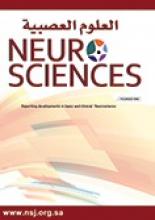JANUARY 22, 2025 - Sleepiness at the wheel is a significant contributing factor to motor vehicle accidents. A new analysis published in Otolaryngology–Head and Neck Surgery reveals that for people with sleep apnea, getting surgery for their condition may lessen their risk of such accidents compared with using a Continuous Positive Airway Pressure (CPAP) device at night or receiving no treatment.
In the analysis of data on 2,832,437 patients with obstructive sleep apnea, 3.4% of patients who underwent surgery were in a car accident at any point following their diagnosis, compared with 6.1% of those using a CPAP and 4.7% of those not receiving any treatment.
Patients receiving no treatment had 21% higher odds of motor vehicle accidents compared with the surgery group. The surgery group had 45% lower odds compared with the CPAP group.
Patients with obstructive sleep apnea who experienced accidents were more likely to have comorbidities such as hypertension, diabetes, and heart failure following the accident.
“Our findings underscore the profound impact that inadequately managed obstructive sleep apnea can have on individual health and public safety,” said corresponding author Elliott M. Sina, BA, a medical student at the Sidney Kimmel Medical College at Thomas Jefferson University. “This work adds to the growing body of evidence supporting surgical interventions such as hypoglossal nerve stimulation as an effective alternative treatment for select patients with obstructive sleep apnea.”
Link to Study: https://onlinelibrary.wiley.com/doi/10.1002/ohn.1131
Full citation: “Risk of Motor Vehicle Accidents in Obstructive Sleep Apnea: Comparative Analysis of CPAP Versus Surgery” Elliott M. Sina, Somya Shankar, Maurits S. Boon, Colin T. Huntley. Otolaryngol Head Neck Surg. Published Online: 21 January 2025 (DOI: 10.1002/ohn.1131).
Copyright © 2019 The Cochrane Collaboration. Published by John Wiley & Sons, Ltd., Reproduced with permission.
- Copyright: © Neurosciences
Neurosciences is an Open Access journal and articles published are distributed under the terms of the Creative Commons Attribution-NonCommercial License (CC BY-NC). Readers may copy, distribute, and display the work for non-commercial purposes with the proper citation of the original work.






